Originally published on 1st April 2016 Last updated on 12th October 2023
Many people with hypothyroidism don’t feel well on T4-only medications such as Levothyroxine or Synthroid, yet when they ask their doctor about trying a different medication, such as Natural Desiccated Thyroid, many doctors refuse to entertain the idea.
That’s when I hear the common query:
If NDT can be really good at treating hypothyroidism, why won’t my doctor prescribe it for me?
Natural Desiccated Thyroid (NDT) was used in the early 1900’s to 1950’s with great effect on patients.
Related Article: Read about what NDT is, here.
So why is it used less often today? What changed?
Let’s explore the reasons below.
1. Standards of Testing Levels
The standards of testing the level of hormones in NDT in its early days were nowhere near today’s standards, so this sometimes resulted in inaccurate dosing in the 1900’s when its use was more common.
Doses were compounded and any pharmacist could put any amount into a capsule, so this was not always an accurate process. The scale they used was not very sensitive, either.
Today’s standards for compounding have changed though, with more-sensitive scales used, by specially trained pharmacists, in specially certified compounding pharmacies. So this is no longer an issue.
Related: This study from 2020 demonstrated that NDT works just as well as synthetics, showing it isn’t less stable or harder to regulate than synthetics any more.
However, in the 1950-60’s, pharmaceutical companies noticed that doctors were frustrated with inconsistent results from this process, so they created a more predictable product that they said was more reliable; isolated T4-only medication. This was the birth of Levothyroxine and other T4 medications.
2. Conversion Queries
Manufacturers of T4-only medication claimed that patients taking T4 on its own would convert enough of the T4 into active thyroid T3, which is arguably the most needed thyroid hormone, as it is the essential active thyroid hormone. The other three thyroid hormones produced, T1, T2 and Calcitonin, are only produced and needed in very tiny amounts. So, taking isolated T4 makes sense in theory, as long as it’s going to convert in to the T3 that we need.
But a lot of people always have and always will struggle to convert enough T4 into T3. And the body isn’t meant to live on T4, a storage hormone, alone. This is why they may still have thyroid symptoms and health complaints on T4 medications like Levothyroxine.
Interestingly, T4-only medication was not the only medication with improved predictability at this time, as eventually, NDT’s dosage variability was addressed too, but by that time, it had fallen out of favour, with T4-only medications being favoured and misinformation surrounding NDT circling, to further support synthetic T4 use.
The pharmaceutical companies went on to patent their T4-only drug brand names, whereas, because NDT comes from a natural (animal) source, it cannot be patented. Therefore, pharmaceutical companies stood to make more money off of T4 synthetics.
3. False Claims About NDT
At the time of this, a lot of false claims were also circulating, regarding how ‘unsafe’ NDT was. As we know, as long as it is used responsibly, just like any medication, it can be perfectly safe for many people.
The false claims about NDT were later confirmed to be a hoax, but by the time this was identified, the damage to NDT had already been done, and T4-only meds were now the number one drug of choice for hypothyroidism.
Some doctors these days still believe these false claims, and claim NDT to be unsafe or inconsistent. Most patients who use it completely disagree though.
It is important to state, however, that a few brands of NDT have been pulled in recent years due to inconsistencies being found in the amount of T3 and T4 contained. This medication does have a complicated history.
But those still on the market. including Armour Thyroid, are very stable.
4. UK Hurdles
It is also worth noting that in the UK, NDT is an unlicensed medication, meaning that a doctor has to give a very good reason to prescribe it, taking full responsibility for its use, and risk losing their ability to practise medicine if found to be irresponsibly prescribing and dosing, for example. Therefore, it is very rarely prescribed on the NHS, so most UK thyroid patients will obtain NDT via private prescription or self-sourcing from the likes of Thailand or Greece.
Because it is so rarely prescribed here in the UK, many UK doctors are not confident in dosing, managing and testing thyroid levels on this type of medication.
The cost of NDT for the NHS also cannot be ignored. The controversy over the price rise of Liothyronine (a T3 synthetic) around five years ago made big news, and many thyroid patients who had this medication withdrawn on the NHS are still without it. I obtain my thyroid medication privately; a combination of Levothyroxine and NDT (Armour). To compare their prices and thus, how much more it would cost the NHS too: the Armour costs me around £160 per month (dosage: 180mg), and the Levothyroxine costs me just £6 per month (dosage: 25mcg).
5. T4 Sponsorship
It has also been claimed that the makers of T4-only medication such as Synthroid for example, have sponsored and continue to sponsor medical meetings, golf outings, symposia, research grants, and speakers’ fees, and have provided free patient literature, pens, pads, mugs, and other giveaways and marketing items.
6. Medical School Teachings
Since the invention and push of T4-only meds, new doctors are mostly being taught to prescribe T4-only medications and nothing else. Many conventionally trained doctors now claim NDT is outdated and less reliable than T4-only meds, despite there being many thyroid patients who claim that T4-only brands like Levothyroxine and Synthroid fail to properly treat their hypothyroidism and symptoms; like me. And many state that NDT works better for them.
However, many private doctors here in the UK, as well as functional and holistic doctors around the world, are prescribing and using NDT medications in their thyroid patients and swear by it as their number one drug of choice for treating hypothyroidism.
7. T3’s Negative Time in The Spotlight
The 1980’s also cast T3 (liothyronine) in a negative light, when weight loss clinics started prescribing T3 for people without thyroid disease (creating hyperthyroidism in users) to encourage weight loss.
As a result, patients were admitted to hospital with dangerous symptoms of hyperthyroidism. So you can see why many endocrinologists and doctors today have an aversion to T3 or T4 and T3 combination medicine, for hypothyroidism. However, it’s not fair on the patients who do need it to feel better today, and it can be used safely and effectively.
8. Literature
As recently as late 2012, the Clinical Practice Guidelines for Hypothyroidism in Adults, published by the American Association of Clinical Endocrinologists (AACE) and the American Thyroid Association (ATA), misrepresented natural desiccated thyroid.
They said: “There is no evidence to support using desiccated thyroid hormone in preference to L-thyroxine monotherapy in treating hypothyroidism and therefore desiccated thyroid hormone should not be used for the treatment of hypothyroidism.”
What did they fail to mention? There is no evidence to support using levothyroxine in preference to natural desiccated thyroid either. The research hadn’t been done either way…
Interestingly, the ATA’s survey results of over 12,000 people published in May 2018 has since contradicted this. [1]
It says:
The survey demonstrated a distinct subset of patients who are dissatisfied with their therapies and their physicians…
Second, patients taking natural preparations, rather than synthetic hormone replacement therapy or combination therapy, were more satisfied with their treatment. DTE (animal-derived natural thyroid preparations or desiccated thyroid extract) was the original form of treatment and received a satisfaction score of 7. DTE was widely replaced in the 1960s when L-T4 (levothyroxine, a synthetic hormone replacement therapy) could be mass-produced inexpensively; its patients gave it a score of 5. The combination therapy of L-T4 along with synthetic T3 (liothyronine or cytomel) received a satisfaction score of 6. Patients taking DTE were less likely to report problems with weight management, fatigue/energy levels, mood, and memory compared to those taking either the L-T4 monotherapy or the combination therapy.
A another study conducted by Thanh D. Hoand, DO, who presented his research at the Endocrine Society Annual Meeting in June 2013, backs up the positive effects of treating hypothyroidism with NDT. Dr. Hoang’s research proved that NDT is a viable alternative to Levothyroxine. Almost half, 49%, of the seventy patients involved in the study preferred NDT treatment compared to just 19% of patients who preferred Levothyroxine.
The Takeaway
This whole situation makes me frustrated. It upsets me that so many people out there, living with hypothyroidism, are receiving a substandard quality of treatment, because of limited treatment options in mainstream medicine.
Many patients don’t even realise they’re non-optimally treated on their thyroid meds.
They’re also diagnosed with depression, fibromyalgia, Chronic Fatigue Syndrome, acid reflux, amongst many other things and they think they have all these separate conditions, when in reality, they could well be being caused by a non-optimally treated thyroid problem, and not being on the medicine right for their needs.
My acid reflux, depression, aches and pains and chronic fatigue all went after being on NDT for a few months. It’s the same for many others.
If you don’t feel well on T4-only medicine such as Levothyroxine and Synthroid, or have been diagnosed with more than just an underactive thyroid, or you have other symptoms or ailments, maybe a doctor hasn’t even taken seriously, please get a full thyroid panel blood test done, and check your thyroid levels. Most importantly, your Free T3 and Free T4, although TPOAB and TGAB are also very beneficial to test.
It’s worth knowing that you can order full thyroid panels yourself from online laboratories too. Find a UK lab here and a worldwide lab here.
If you’ve had these tested, then make sure they are optimal. This can make all the difference.
You may just do better on another thyroid medication.
NDT is available on prescription in the UK, on a named-patient basis on the NHS, or from a private doctor / private prescription. It is made according to certain quality standards, contrary to what some doctors say. However, it is still an unfortunate fact that many thyroid patients continue to self-source this medication to get their quality of lives back. Self-sourcing should never be taken lightly and I always suggest that you have medication prescribed by a doctor wherever possible. Buying medications online carry a lot of risks. Many of us have to go private to get these medication options.
If you’re struggling to find a doctor who will prescribe alternatives to just T4-only medication, you could also try asking your pharmacist if they know any doctors who prescribe them.
See also: How to Find a Good Medical Professional for Your Thyroid Condition
Have you asked to try NDT?
You can click on the hyperlinks in the above post to learn more and see references to information given.
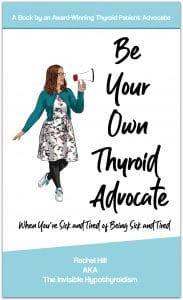
The book Be Your Own Thyroid Advocate: When You’re Sick and Tired of Being Sick and Tired, which builds on this article in detail. Reclaim your thyroid healthy life.
References:
[1] https://www.thyroid.org/ata-hypothyroidism-survey-results/

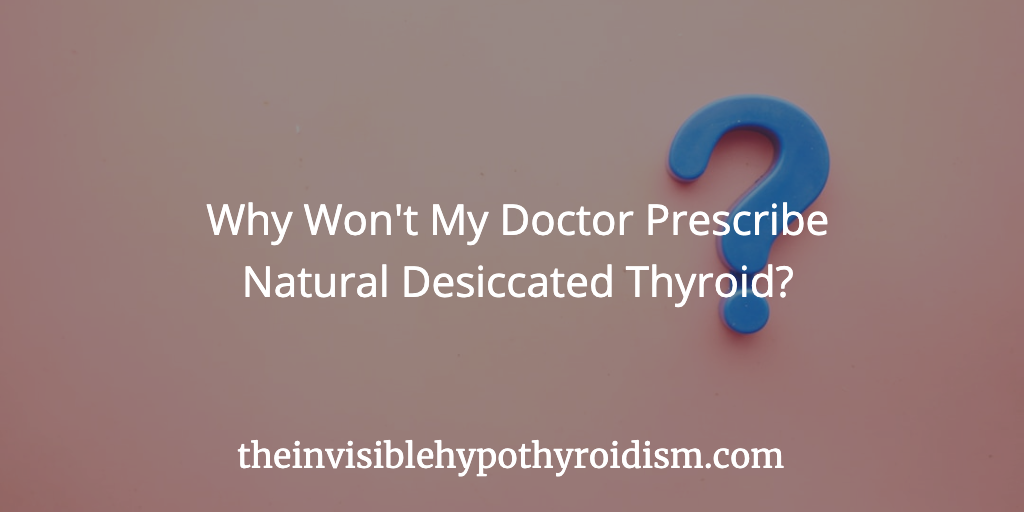
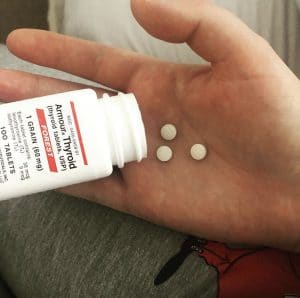
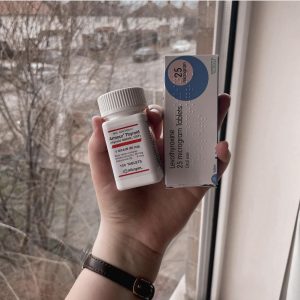
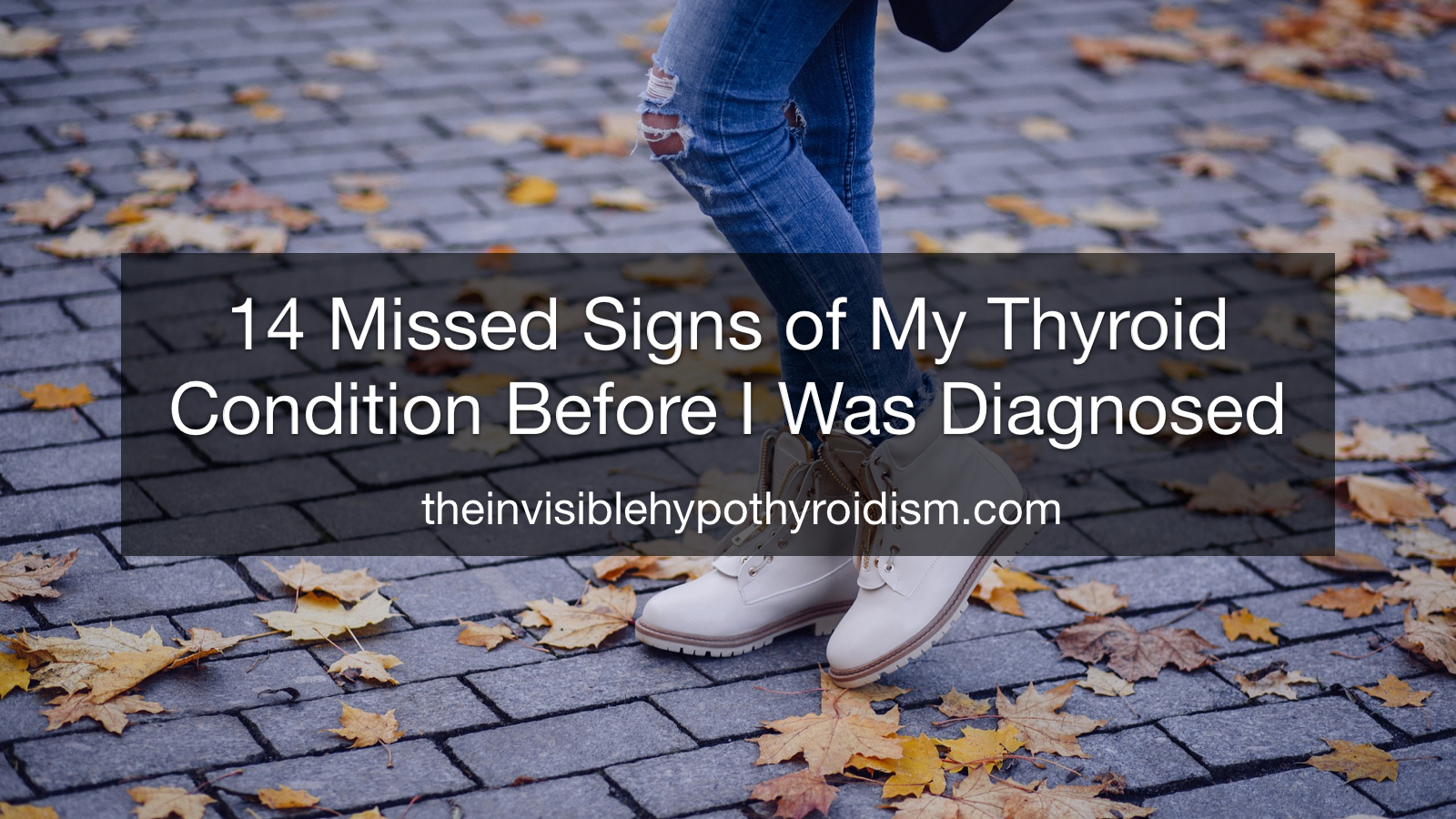
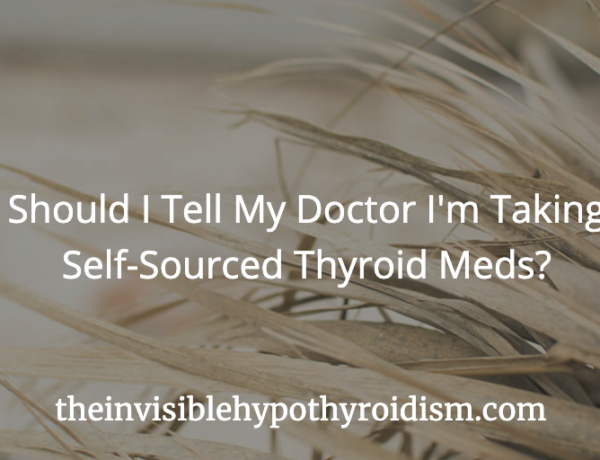
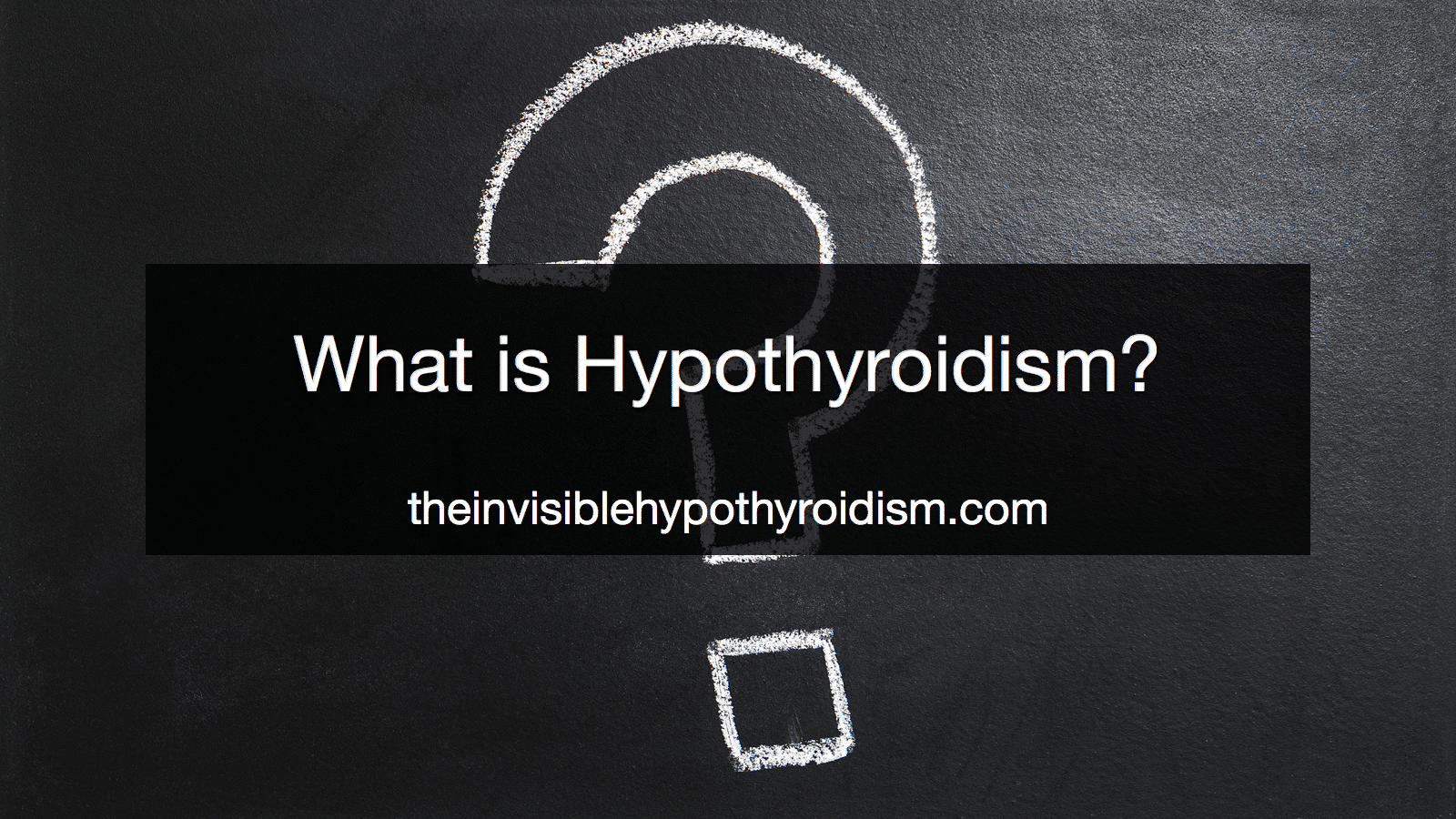

8 Comments
Wojciech Majda
December 7, 2022 at 2:09 am60 mg of Thyroid is the equivalent of 100 mcg of levothyroxine (according to USP). It means that it takes about 600 times more Thyroid powder to make 1 tablet of NDT than it’s synthetic equivalent.
Considering that sodium levothyroxine is just 15 times more expensive than thyroid powder, it just makes sense (financially) to put people on synthetics. The cost of the active ingredient in the medication is about 50 times lower than for synthetics.
For Big Pharma, there are huge cost savings on the API. Patients are just a statistic!
Richard Hale
June 7, 2022 at 8:14 pmI keep fighting with my doctors about after being on synthetic for 10 years and becoming suicidal and depressed and many many other things. I finally convinced him to put me on armor I have felt better than I have in years and my mind works right. But because they still can’t get rid of my fatigue and feeling bad all the time shortness of breath. They want to put me back on synthetic I am fighting them so bad but I’m at a loss of what to do.
Diane Madsen
November 16, 2021 at 1:08 pmWith all the recalls, I find it easier to dose my own T4&T3. I follow my labs closely and work together with my Functional Physician. https://thyroidpatients.ca/2020/08/28/rlc-nature-throid-wp-thyroid-recall/
Stephen Farkash
December 18, 2019 at 7:46 pmI purchased and read your book, Be Your Own Thyroid Advocate. My GP would not even consider NDT. I have spent a considerable amount of time trying to find a reliable source for it. It seems every avenue is being shut down or no longer available. I live in the USA in the state of New Mexico. Been on Levothyroxine nearly two months with no improvement. Face swollen. Sure be helpful if instead of just talking about NDT, there would be information for desperate folks on where to get it. Help!
Rachel Hill
December 18, 2019 at 7:50 pmHi Stephen, I’m sorry to hear about you struggling to find someone who will prescribe you NDT. GP’s don’t tend to prescribe this as it requires a referral to an endocrinologist at the very least usually. Other types of medical practitioners such as functional medicine doctors can be more useful. When it comes to self-sourcing, I cannot share sources due to liability unfortunately, but they are shared a lot in online forums and support groups for thyroid patients. However, it is indeed getting harder to self-source these medications as you’re right – they’re shutting them down. NDT is generally easier to get prescribed in the US compared to the U.K., but I’m not sure about your specific state. You may be able to find a more open practitioner for prescribing NDT by following the resources listed here: https://www.theinvisiblehypothyroidism.com/how-to-find-a-good-medical-professional-for-your-thyroid-condition/
Caz / InvisiblyMe
February 26, 2019 at 5:58 pmEugh, I don’t think the doctors I used to see re: thyroid had even heard of NDT! It’s people like you who make all the difference in bringing these issues up, empowering patients and bringing new thoughts and avenues to explore when it comes to treatment. You’ve made such excellent points on the issues around NDT, big pharma, and even the older thoughts on its safety. x
keith land
July 28, 2018 at 2:15 pmA friend of mine has just been told that her doctor is stopping her T3. She has been taking 60mg for 5 years. She tried taking T4 a few years ago, which made her very ill. Her weight ballooned. She has enough tablets for about one month. Have you any suggestions that might help her. Thankyou.
Rachel Hill
July 28, 2018 at 2:16 pmHi Keith, is she on synthetic t3 along with t4 or on NDT? And where in the world is she? It can differ depending on country. She’s welcome to join my Facebook group Thyroid Family which has over 30,000 members now, who will also help her.